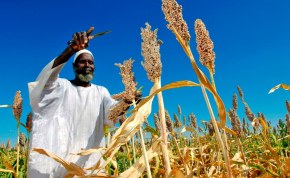
This time our guest blogger is Carolyne from Dar es Salaam. After a visit by Rails Girls and Super Sisters she decided to found her own project encouraging the women in her community to get more interested in technology. We are really happy to share Carolyne's story with all of you!
Hi!
My name is Ekyarisiima Carolyne from Tanzania, i am the founder of the APPS and GIRLS project.
Apps and Girls project was founded in June 2013 after the Rails Girls and Super sisters workshop in Dar es Salaam.
I was very inspired and motivated by what these women were doing and had much time with Erika Halonen and Meri Saarivirta to whom i shared my idea of training women on how to use internet and social networks on their mobile phones to do and improve business, help their children to do home-work and know about their health. So far we have 10 women registered waiting to begin their trainings.
They were really of great help and advised me on how I should expand my idea to reach to young girls too.
This was really a dream come true, I really wanted to do something to help women in my country but was not confident if this can be possible but here I am now very determined to get more women to embrace technology in Tanzania.
You educate one woman, you will have educated the whole nation
When I officially lauched APPS and GIRLS on JUNE 29 2013 at KINU hub, I managed to get 8 ladies that day. I introduced what I was planning and they were into it too!
Since the project’s main goal is to get more women and young girls into technology and use it to earn income for themselves, we empowers girls and women through trainings, workshops, bootcamps and mentorship.
July 25th we had our first event "JOOMLA WORKSHOP FOR WOMEN" HAAA! this was amazing! 35 ladies participated, and 8 men as well!
It was an intense workshop for 8 hours and ladies were all enthusiastic to learn Joomla,
We had 3 trainers who made sure everybody in need was atteded to and by the end of the day they had a smile on their faces.
"I am so excited about this Joomla, i did not know that it also needed to be installed on the computer" said Neema one of the participants.
That day i got 10 ladies who wanted mebership, it was realy waesome. Inorder to acheive our goal, we plan to arrange a follow up session of that training early August and launch a competition for women where whoever that comes up with a Joomla product that will benefit the community and has financial benefit will get the prize!
Check out Apps and Girls on facebook!













